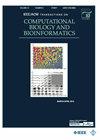RFLP-inator:用于 PCR-RFLP 技术硅学模拟和补充工具的交互式网络平台。
IF 3.4
3区 生物学
Q2 BIOCHEMICAL RESEARCH METHODS
IEEE/ACM Transactions on Computational Biology and Bioinformatics
Pub Date : 2024-10-08
DOI:10.1109/TCBB.2024.3476453
引用次数: 0
摘要
聚合酶链式反应-限制性片段长度多态性(PCR-RFLP)是一种成熟的分子生物学技术,可利用 DNA 序列的变异性进行生物鉴定、遗传病检测和生物多样性分析等。传统的 PCR-RFLP 需要湿法实验室程序,可能导致技术错误、程序挑战和经济成本。为了提供方便、高效的 PCR-RFLP 技术补充,我们推出了 RFLP-inator。这是一个基于 R 的综合网络平台,使用 Shiny 软件包开发,可模拟 PCR-RFLP 技术,集成分析功能,并为体外结果的事前和事后评估提供补充工具。我们独立开发了 RFLP-inator 算法,我们的平台提供七种动态工具:RFLP 模拟器、模式识别器、酶选择器、RFLP 分析器、多重 PCR、限制性图谱制作器和凝胶绘图器。此外,该软件还包括一个包含 25 万多条细菌 16S rRNA 基因序列的限制性模式数据库。我们根据已发表的研究成果成功验证了核心工具。这一新平台具有开放性和用户友好性,为分子遗传学专业的研究人员、教育工作者和学生提供了宝贵的资源。RFLP-inator 不仅简化了 RFLP 技术的应用,还支持遗传学的教学工作,体现了其实用性和可靠性。该软件可在 https://kodebio.shinyapps.io/RFLP-inator/ 免费获取。本文章由计算机程序翻译,如有差异,请以英文原文为准。
RFLP-Inator: Interactive Web Platform for In Silico Simulation and Complementary Tools of the PCR-RFLP Technique
Polymerase chain reaction - Restriction Fragment Length Polymorphism (PCR-RFLP) is an established molecular biology technique leveraging DNA sequence variability for organism identification, genetic disease detection, biodiversity analysis, etc. Traditional PCR-RFLP requires wet-laboratory procedures that can result in technical errors, procedural challenges, and financial costs. With the aim of providing an accessible and efficient PCR-RFLP technique complement, we introduce RFLP-inator. This is a comprehensive web-based platform developed in R using the package Shiny, which simulates the PCR-RFLP technique, integrates analysis capabilities, and offers complementary tools for both pre- and post-evaluation of in vitro results. We developed the RFLP-inator's algorithm independently and our platform offers seven dynamic tools: RFLP simulator, Pattern identifier, Enzyme selector, RFLP analyzer, Multiplex PCR, Restriction map maker, and Gel plotter. Moreover, the software includes a restriction pattern database of more than 250,000 sequences of the bacterial 16S rRNA gene. We successfully validated the core tools against published research findings. This new platform is open access and user-friendly, offering a valuable resource for researchers, educators, and students specializing in molecular genetics. RFLP-inator not only streamlines RFLP technique application but also supports pedagogical efforts in genetics, illustrating its utility and reliability.
求助全文
通过发布文献求助,成功后即可免费获取论文全文。
去求助
来源期刊
CiteScore
7.50
自引率
6.70%
发文量
479
审稿时长
3 months
期刊介绍:
IEEE/ACM Transactions on Computational Biology and Bioinformatics emphasizes the algorithmic, mathematical, statistical and computational methods that are central in bioinformatics and computational biology; the development and testing of effective computer programs in bioinformatics; the development of biological databases; and important biological results that are obtained from the use of these methods, programs and databases; the emerging field of Systems Biology, where many forms of data are used to create a computer-based model of a complex biological system

 求助内容:
求助内容: 应助结果提醒方式:
应助结果提醒方式:


